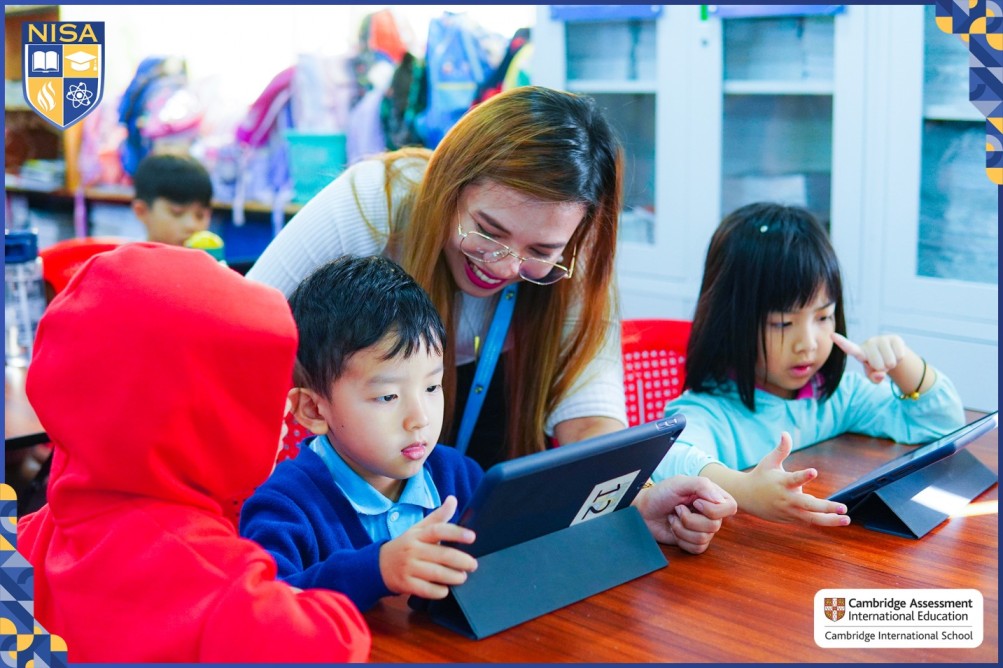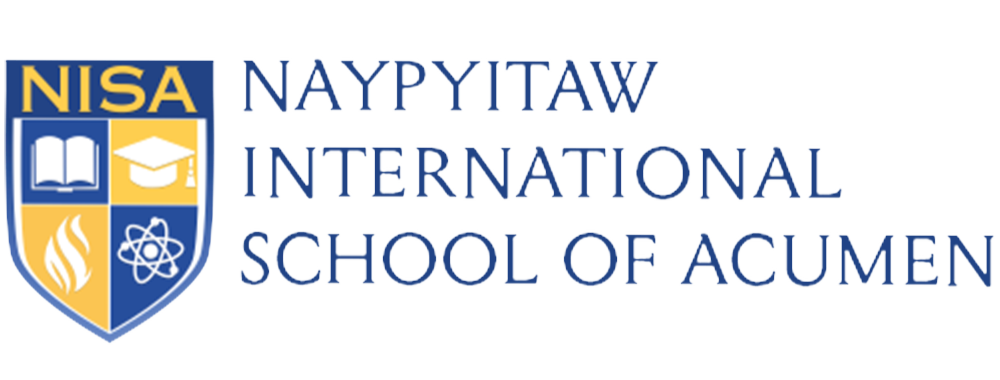
Our preschool program is an international program which aims to provide a meaningful and quality international education to all students. The school is driven by its mission to develop student skills, including intellectual, moral, emotional, social and physical skills. With this aim, it has established activities and programs to address all of the above skills.
Curriculum design is determined and shaped mainly based on the school’s mission and vision, philosophy, values and the extent to which the design meets and supports the fulfillment of the school’s mission and vision. Students are offered a variety of subject choices according to interests and needs.
Our curriculum is a holistic, child-centered program that natures each child by offering carefully selected and carefully sequenced learning experiences. It focuses on major areas of the development of children.
- Cognitive or intellectual development
- Communication, language and literacy development
- Persona, social and emotional development
- Physical development
- Creative development
At the same time, it natures the natural curiosity and sense of self that can serve as the foundation for a lifetime of learning.
The lesson format is designed to present information in a way that makes it easy for children to learn.
Each lesson contains the most relevant subjects, presented as miniature lessons.
Below is an overview of the curriculum and subjects offered in Nursery, Pre-Kg and Kg Levels.
Nursery (3 to 4 years old)
- Scholastic, Early Childhood Program
- Scholastic Publisher Inc., USA
Pre-KG (4 to 5 years old)
- Saxon Early Learning
- Saxon Publishers Inc., USA
- Macmillan/ McGrow-Hill, Inc. USA (Math)
- Oxford Wonder World (Phonics)
- Oxford University Press, UK
KG (5 to 6 years old)
- DLM Early childhood Express
- SRA / Mcgrow-Hill., Inc. USA
- Jolly Phonics
- Jolly Learning LTD, UK
- Cambridge Primary Mathematics
- Cambridge Primary English
- Cambridge Primary Science
With our curriculum children develop
concrete skills through experiences with music and movement, art, storytelling, and teacher directed lessons that, in addition to skills development, emphasize practice and reflection.
Learning Centers
Why use learning centers in the class room?
- Learning centers help children to make choices.
- Focus on particular activities.
- Giving them the freedom to try these activities on their own.
When children are actively involved in their own learning, they tend to find such hands-on experiences meaningful and relevant in their own lives.
Morning Circle
This is a time for togetherness and a positive, engaging way to start each day.
Attendance
- Attendance through song and game.
- Kids learn math
Calendar
- Talking about date, day, month & year
- Counting dates in ordinal numbers
- Saying “Today is the first of December 2019, Monday”.
- Talking about tomorrow and yesterday
- Saying “Today is Monday
- Yesterday was Sunday”
- Tomorrow will be Tuesday
- Checking weather
- Review about previous lessons or talk about current lessons
Music And Movement
Children learn to sing, play simple instruments, listen, and respond to music. They also begin to create and recreate moods and experiences in order to express their feelings through increasingly coordinated movement.
Outdoor Play
Learning takes place outdoors as well as indoors. In an outdoor learning area children can develop motor skills, language, social skills, self-confidence, group camaraderie, and can have fun.
Closing Circle
Reflect/Access questions help children think about possible applications of what they have learnt in the lesson.
Co-Subjects
Science
Young children are natural scientists. They are eager to discover all they can about the world in which they live. In kindergarten children participate in simple investigations that help them begin to develop the skills of asking questions, and making informed decisions. Using their own senses and common tools, students make observations and collect information. Through these processes, children about their world. The meaningful experiences increase children’s understanding of the natural world, living things, cycles, change, and patterns.
Fine Arts
Through art, children learn to express their thoughts, feelings, and ideas in symbolic ways.
Social Studies
Social studies learn them to share, cooperate, and participate with others.
Health or Safety
Lessons in health or safety help children make life choices that will enhance their physical well-being.
Physical Development
Specially designed movement activities help children practice and improve their gross and fine motor skills as well as maintain personal space.
Personal and Social Development
Interwoven throughout the entire program, these activities enable children to develop a sense of who they are and their own capabilities to establish positive relationships with others.
Special Activities
Technology
Computer activities help children build not only their technology skills, but also early language, math and other skills.
Moral
Moral is one of the major aspects in learning that plays a very important rule in child’s development. It caters the significant character building that each learner should know to grow upright with dignity.
Why teaching Moral?
- Good moral is a foundation of a strong nation.
- At the very young age of a child, it should be instilled the importance of respect towards others.
- The children of today are the leaders of the future. Therefore, they should learn the values that leaders must possess.
- This is the basic education but plays the vital rule in child’s development.
Culture
Our Kindergarten follows an international curriculum; however, it is important for Myanmar students to understand their culture to be able to make connections to other cultures. While it helps non-local students to adapt to our culture, and address the challenges that they can face in their daily life.
Culture is offered in Pre-kg and Kg level
Sand and Water
Experiences in the sand and water area have a sensory motor quality, which is a unique attribute that allow children to release tension in a non-threatening environment and help them develop new skills, increasing their confidence. Sand and water experiences will also help children grow in all areas of development.
